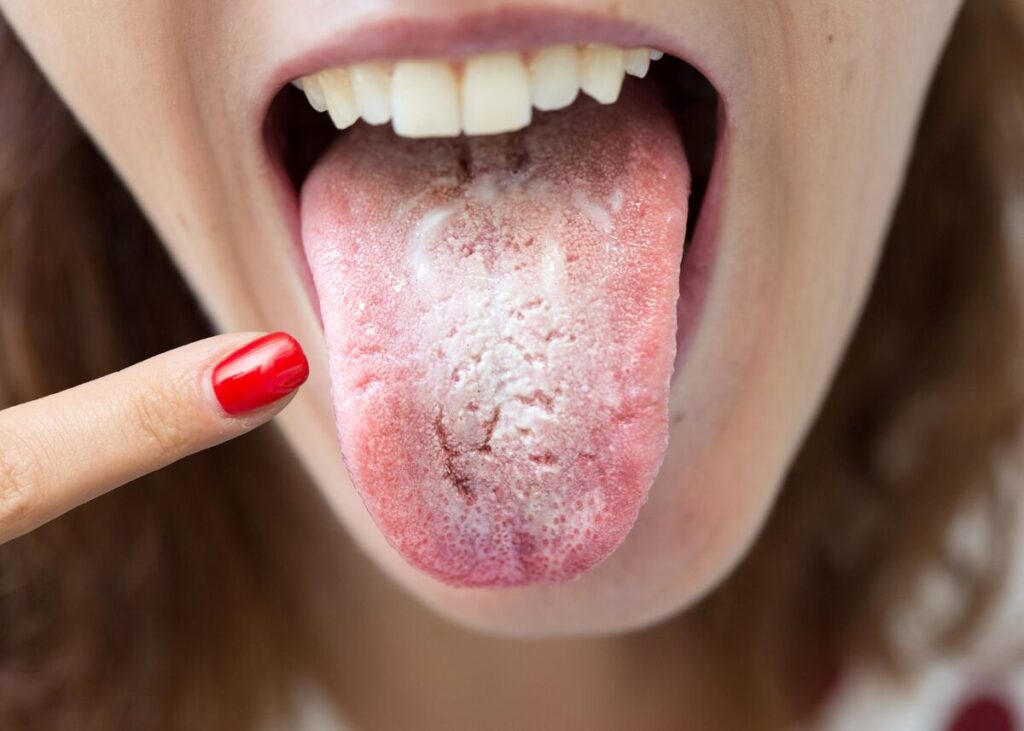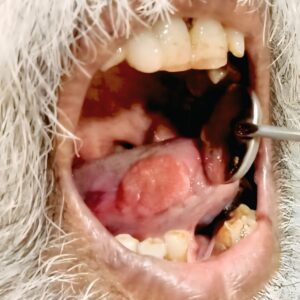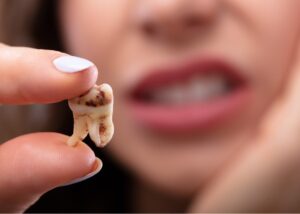
Overview of Oral Side Effects of Mounjaro (Tirzepatide)
Mounjaro, known generically as tirzepatide, has recently gained recognition for its dual role in managing type 2 diabetes and supporting weight loss. While it offers promising therapeutic benefits, it’s important for patients to be aware of potential side effects, especially those affecting the mouth and oral cavity. This article provides an in-depth look at Mounjaro, including its uses, common adverse effects, and specific oral-related issues such as oral thrush and discoloration of the tongue. Additionally, we will discuss strategies to prevent these side effects of Mounjaro and emphasize the importance of consulting healthcare professionals for personalized care.

Table of Contents
What Is Mounjaro?
Mounjaro is an injectable medication developed by Eli Lilly that mimics the actions of two hormones involved in blood sugar regulation: GIP (glucose-dependent insulinotropic polypeptide) and GLP-1 (glucagon-like peptide-1). This dual mechanism enhances insulin production and reduces glucagon secretion, leading to improved blood sugar control. Its unique approach has made it a valuable option for managing type 2 diabetes and promoting weight reduction.
Clinical Uses of Mounjaro
A. Type 2 Diabetes Management:
Mounjaro helps lower high blood sugar levels by increasing insulin release and decreasing liver glucose production, making it effective for glycemic control.
B. Weight Loss:
Beyond its effects on blood sugar, Mounjaro has shown significant potential in aiding weight loss, especially in individuals with obesity or excess weight alongside other health issues.

Common Side Effects of Mounjaro
While many patients tolerate Mounjaro well, some experience side effects, which tend to be mild to moderate. These include:
- Nausea
- Vomiting
- Diarrhea
- Reduced appetite
- Constipation
- Headache
- Fatigue
Most of these symptoms tend to diminish over time. However, some oral health issues can occur, warranting further attention.
Oral Side Effects of Mounjaro
Although less common than gastrointestinal symptoms, oral side effects can impact comfort and oral health. These include:

1. Dry Mouth (Xerostomia):
A frequent complaint, dry mouth can cause discomfort, difficulty swallowing, and heighten the risk of dental problems.
2. Oral Candidiasis (Thrush):
An opportunistic fungal infection caused by *Candida albicans that appears as white patches inside the mouth, often on the tongue or cheeks.
3. Yellow Tongue:
A discoloration that may result from bacterial overgrowth, poor oral cleanliness, or side effects related to medication.
4. Taste Changes:
Some individuals report altered taste sensations, such as metallic or bitter flavors.
The Link Between Mounjaro and Oral Thrush
Oral thrush is a noteworthy concern among some Mounjaro users. The development of this fungal infection can be facilitated by several factors:
- Reduced Saliva Production:
Dry mouth creates an environment conducive to fungal overgrowth.
- Altered Immune Response:
While Mounjaro primarily targets blood sugar regulation, it may slightly influence immune function, increasing susceptibility to infections like candidiasis.
- Oral Hygiene Challenges:
Nausea or discomfort may lead to neglect of oral care, further promoting fungal growth.

Signs of oral thrush include:
White, curd-like patches on the tongue, cheeks, or palate
Soreness or redness in the mouth
Burning or discomfort
Constipation
Difficulty swallowing or a sensation of food sticking
Preventing Oral Thrush During Mounjaro Treatment
Taking proactive steps can significantly reduce the risk of developing oral thrush:
1. Maintain Good Oral Hygiene:
Brush your teeth at least twice daily with fluoride toothpaste, clean your tongue gently with a scraper or soft brush, and floss regularly.
2. Stay Well-Hydrated:
Drinking plenty of water helps combat dry mouth and maintains oral moisture.
3. Use Antifungal Agents if Needed:
If early signs of thrush appear, consult your doctor about antifungal mouthwashes or medications.
4. Limit Sugar and Yeast-Containing Foods:
These can encourage fungal growth.
5. Schedule Regular Dental Check-Ups:
Routine dental visits help monitor oral health and catch problems early.
The Importance of Consulting Your Healthcare Provider
If you experience any oral symptoms as side effects of Mounjaro such as persistent thrush, dry mouth, taste changes, or discoloration, it’s crucial to speak with your healthcare provider. They can assess your condition, adjust your medication if necessary, and recommend appropriate treatments or referrals to specialists like dentists at Sparsh Dental Clinic in Bilaspur or dentist at your city.
Always consult your doctor before stopping or changing your medication.
Final Thoughts
Mounjaro (tirzepatide) has revolutionized the management of type 2 diabetes and weight loss. Nonetheless, being aware of potential oral side effects of Mounjaro—such as dry mouth, oral thrush, and tongue discoloration—helps patients take preventive measures and seek timely care. Maintaining good oral hygiene, staying hydrated, and regularly consulting your healthcare team can minimize complications and optimize your treatment experience.
In summary: Knowledge of the possible oral side effects associated with Mounjaro empowers you to manage your health proactively. If you notice any unusual oral symptoms, don’t hesitate to seek medical advice to ensure safe and effective use of this medication.
Disclaimer: This information is intended for educational purposes and should not replace professional medical advice. Always discuss concerns or side effects with your healthcare provider before making any changes to your treatment plan.







